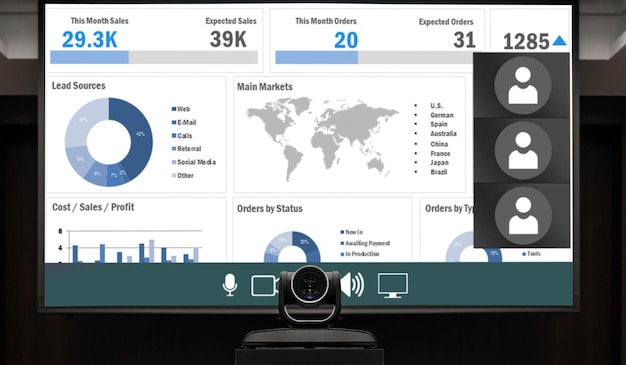Advanced Statistical Modeling
Develop expertise in complex statistical techniques for analyzing multidimensional data relationships. This course covers multiple regression, ANOVA designs, and structural equation modeling using R and SPSS.

Program Overview
This advanced program provides comprehensive training in sophisticated statistical techniques used to analyze complex data structures and multidimensional relationships. Participants develop capabilities in applying contemporary modeling approaches across various research and analytical contexts.
The curriculum emphasizes practical implementation of statistical models using industry-standard software including R and SPSS. Training covers multiple regression approaches, analysis of variance designs, multilevel modeling frameworks, and Bayesian statistical methods. Participants learn model specification, diagnostics, and interpretation of results.
Instruction addresses both frequentist and Bayesian paradigms, providing participants with diverse analytical frameworks for addressing research questions. The program includes extensive hands-on practice with real datasets, enabling participants to develop competence in model building, validation, and communication of findings.
Technical Competencies Developed
Participants completing this advanced program will have developed sophisticated analytical capabilities applicable to complex research questions and multidimensional datasets. These competencies enable work across academic research, organizational analytics, and consulting contexts.
Regression Modeling
Implement multiple regression, polynomial regression, and logistic regression models. Interpret coefficients, assess model fit, and handle multicollinearity issues.
ANOVA Designs
Conduct factorial ANOVA, repeated measures ANOVA, and ANCOVA analyses. Understand interaction effects and perform post-hoc comparisons.
Multilevel Modeling
Analyze hierarchically structured data using mixed effects models. Address nested data structures and estimate random effects components.
Structural Equation Modeling
Specify and test path models and confirmatory factor analysis. Evaluate model fit indices and interpret direct and indirect effects.
Bayesian Statistics
Apply Bayesian inference approaches including prior specification, posterior estimation, and credible interval interpretation using contemporary software.
Model Diagnostics
Assess model assumptions through residual analysis, evaluate influential observations, and address violations of statistical assumptions.
Software and Analytical Tools
This program provides extensive hands-on training with statistical software platforms commonly used in research and analytical practice. Participants develop proficiency in implementing complex models across multiple environments.
R Statistical Environment
- Linear and generalized linear models using base R and tidyverse
- Multilevel modeling with lme4 and nlme packages
- Structural equation modeling using lavaan package
- Bayesian analysis with brms and Stan interfaces
- Data visualization with ggplot2 for model results
SPSS and Related Tools
- Regression procedures and model comparison in SPSS
- ANOVA and mixed models using SPSS syntax
- Factor analysis and reliability assessment
- Missing data handling with multiple imputation
- AMOS for structural equation modeling applications
Longitudinal Data Analysis
- Growth curve modeling for repeated measures data
- Survival analysis and event history modeling
- Time series analysis fundamentals and applications
Model Validation
- Cross-validation and bootstrap resampling techniques
- Power analysis and sample size determination
- Simulation studies for model performance evaluation
Statistical Standards and Best Practices
Training emphasizes adherence to statistical best practices and contemporary reporting standards recognized across research communities. Participants learn to conduct and communicate statistical analyses with appropriate rigor and transparency.
Assumption Testing
Systematic evaluation of statistical assumptions including normality, homoscedasticity, and independence. Learn appropriate remedial measures when assumptions are violated.
Effect Size Reporting
Calculate and interpret effect sizes alongside significance tests. Understand practical significance versus statistical significance in research contexts.
Reproducible Analysis
Document analytical procedures through annotated syntax and R markdown. Implement version control and reproducible workflow practices.
Publication Standards
Report statistical analyses according to APA guidelines and journal-specific requirements. Understand transparency standards for contemporary research.
Who Should Attend This Program
This advanced program suits individuals with foundational statistical knowledge seeking to develop sophisticated modeling capabilities. Prerequisites include basic understanding of descriptive statistics, hypothesis testing, and familiarity with statistical software.
Research Analysts
Professionals analyzing complex datasets who require advanced statistical techniques for multidimensional data analysis.
Doctoral Candidates
Graduate students conducting dissertation research requiring sophisticated statistical modeling approaches.
Data Scientists
Practitioners seeking stronger statistical foundations for machine learning and predictive modeling work.
Academic Faculty
Researchers and instructors expanding analytical repertoire or updating knowledge of contemporary statistical methods.
Policy Analysts
Professionals conducting program evaluation or policy research requiring advanced analytical techniques.
Quantitative Consultants
Consultants providing statistical analysis services who need expertise in contemporary modeling approaches.
Assessment and Skill Development Tracking
Participant progress is evaluated through multiple practical assessments emphasizing application of statistical techniques to realistic analytical scenarios. Feedback addresses both technical implementation and interpretation of results.
Weekly Analytical Assignments
Practical exercises involving real datasets requiring implementation of specific modeling techniques. Assignments include model specification, diagnostic evaluation, and interpretation of findings.
Software Proficiency Development
Hands-on practice sessions building competence in R and SPSS implementation. Participants develop reproducible analytical workflows using contemporary software practices.
Capstone Project
Comprehensive analytical project requiring integration of multiple modeling techniques. Participants present findings including methodological justification and interpretation of results.
Program Completion Criteria
Certification requires attendance of minimum 85% of sessions, completion of weekly assignments with passing scores, and successful capstone project presentation demonstrating applied competence.
Explore Additional Programs
Consider these complementary training programs to further develop your analytical capabilities.
Research Design and Methods
Master systematic approaches to conducting rigorous research across various domains with comprehensive training in experimental design.
Text Mining and NLP Analytics
Extract insights from unstructured text data using natural language processing techniques and Python libraries.
Advance Your Statistical Expertise
Enroll in the Advanced Statistical Modeling program to develop sophisticated analytical capabilities for complex research questions.
Request Enrollment Information